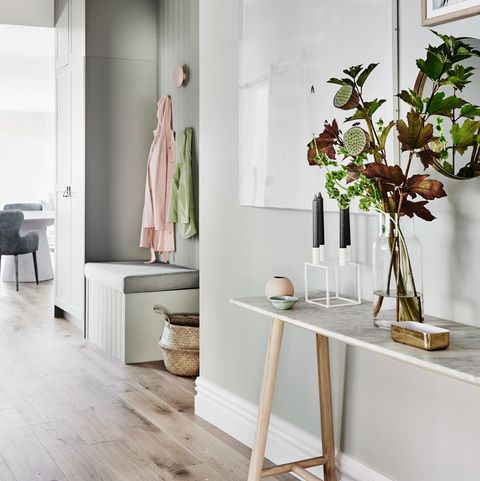Landlord inspection of property
The main purpose of an inspection is to find out the overall condition of the interior and exterior of a property and record any repairs or maintenance that may be required. This is a way of maintaining a good relationship with the tenant and it is also an opportunity to remind them of their responsibilities. During an inspection, tenants can ask questions or discuss issues they may be experiencing with the property.
It is important to carry out regular checks as they will highlight any necessary maintenance or safety issues which can be dealt imminently. Regular property inspection will help you keep your tenant safe and avoid unnecessary costs and complaints from them. Ensure to not carry out these checks too often or unnecessarily, as it could put a strain on the relationship.
The importance of property inventories
You can carry out inspections every three, four or six months.
Carrying out a periodic inspection allows you to:
- check the condition of the property
- deal with necessary maintenance or repairs
- ensure that the tenant is looking after the property
How often should you be inspecting your rental property
As well as the inspection at the beginning and end of the tenancy (check-in and check-out), regular checks throughout the year will come in handy. Some landlords carry out the first inspection after one month, to satisfy themselves that all is well and this also helps build the landlord-tenant relationship. Following that the frequency of the inspections should be no less than every three months.
It may be useful to communicate the details with your tenant at the start of a tenancy, that you intend to carry out periodic inspections and how often they are to take place. Some tenancy agreements even include a clause saying that periodic inspections will be carried out during the tenancy. It would be best to manage tenant expectations early on. You could even agree on an inspection schedule with the tenant at the start of a tenancy.
Can landlords have tax efficiency and flexibility?
Giving notice of an inspection
If you haven’t agreed your periodic inspections in advance or feel the need to do a one-off inspection, then you need to give the tenant sufficient notice.
The 1988 Housing Act provides a tenant the right to live, undisturbed, in a property for an agreed amount of time and for an agreed amount of rent. It also allows landlords to enter a rental property to view its condition and state of repair. A landlord is not permitted to turn up at the property unannounced and demand entry. A landlord must give the tenant at least 24 hours’ notice of an unscheduled inspection – ideally in writing – and it should only take place at a reasonable time of the day. Best practice is to give more than 24 hours where possible, which allows the tenant time to agree and get the property ready for inspection.
How to achieve high property rental yields
Entering the property in an emergency
Emergencies do happen. Under the emergency circumstances you can enter the property without giving notice or getting the tenant’s consent. These include where:
- there’s a fire or a smell of gas
- immediate remedial work is required to maintain the tenant’s safety or protect the structure of the property
- you suspect dangerous or criminal activity is going on.
Your common sense should allow you to decide what is an emergency situation.
Can a tenant refuse access to a property
Assuming you have nothing written into the tenancy agreement, there’s no emergency, and you have no grounds to suspect illegal activity in the property, your tenant CAN legally refuse you access.
It may be that the date you’ve suggested isn’t convenient for them in which case another date can be arranged. Alternatively, the tenant may claim illness, mental health issues or a pandemic as a reason for refusing access. If this is the case show willing and be as flexible as possible to accommodate them.
While it’s always best to try and maintain a positive relationship with your tenant throughout their tenancy, if you think the tenant has something to hide, ask more questions. Where necessary you can be more insistent, explaining your legal responsibility to them and the minimum 24 hours’ notice required, which should persuade them to allow access.
What is key to a good tenant-landlord relationship
Except in an emergency, as a landlord, you have no right to enter the property without the tenant’s consent unless you are carrying out tasks agreed in the tenancy agreement such as gardening or cleaning. Entering the property without permission is illegal.
Please contact Pelin Martin to book a 30-minute complimentary property consultation on +0208 994 7327 – pm@bluecrystallondon.co.uk


